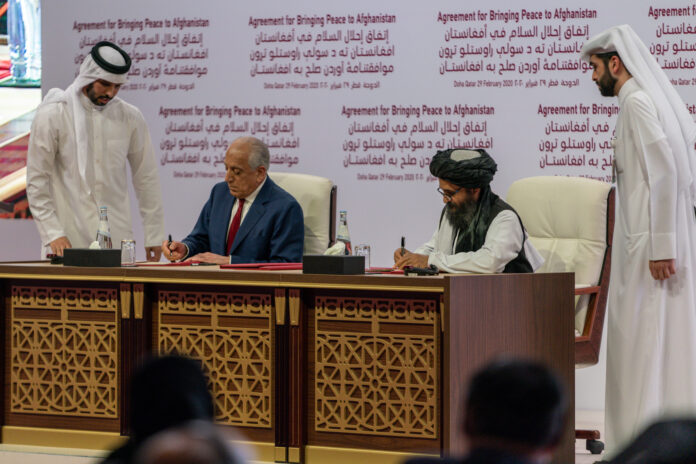Author: Lindsay Maizland
Affiliation: Council on Foreign Relations
Organization/Publisher: Council on Foreign Relations
Date/Place: March 2, 2020, U.S.
Type of Literature: Analysis
Word Count: 1732
Link: https://www.cfr.org/backgrounder/us-taliban-peace-deal-agreement-afghanistan-war
Keywords: Taliban, Afghanistan War, Afghanistan, United States, Peace Process.
Brief:
With approximately 157,000 casualties since 2001, the Afghan war entered into a peace agreement between the US and the Afghan Taliban (a non-state actor). Author Lindsay Maizland encapsulates imminent prospects of the agreement by answering rudimentary enquiries. The nine rounds of discussions started with a ceasefire followed with a deadline of 135 days for the removal of US troops; the negotiations then entered into Intra-Afghan phase where Taliban agreed to talk to Afghan government in March 2020. The author argues that although a major challenge, it is however an initial peace agreement moving towards Afghanistan’s stability and peace, but with many issues remaining to be worked out including the democratic situation of Afghanistan after the withdrawal of US troops. Thirdly, in answering the question “Why are US troops in Afghanistan?”, the author delineates its history since 9/11, specifically in reference to the Islamist fundamentalist Taliban that ruled Afghanistan since 1996, and which subsequently supported Al-Qaida. Lastly, while discussing the role of outside powers the author mentions the wide support of Russia and China in the peace process, while Pakistan being a maker and supporter of Taliban-supported peace talks, India’s strong support for the Afghan government in order to minimize Pakistan’s influence in Afghanistan, and Iran’s view of the Taliban as a Sunni foe while its leaders have acknowledged that the Taliban will be the power holders in Afghanistan and have accordingly started working to improve their mutual ties.
By: Maryam Khan, CIGA Research Associate




